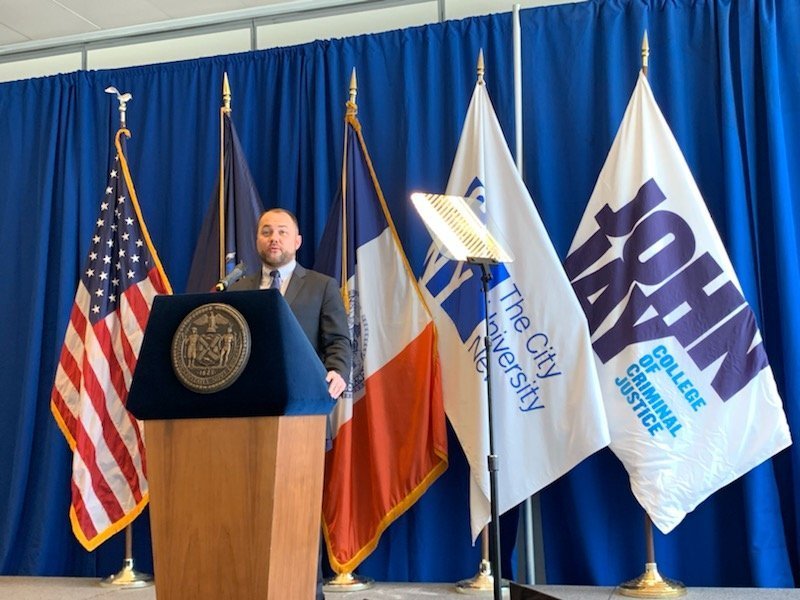Brooklyn’s District Attorney Eric Gonzalez applauded City Council Speaker Corey Johnson’s recent unveiling of criminal justice proposals but wants to make sure that the city is also doing it’s part when it comes to providing rehabilitation and treatment services.
The initiative, titled “A 21st Century Criminal Justice System,” included a series of legislative efforts including calls for parole reform, expansion of diversion programs, elimination of mandatory court surcharges and creation of an alternative to incarceration courtroom, among other measures.
Gonzalez hailed the announcement but was quick to note that though decriminalization and local law changes are fundamental so too are the need for support services.
“I want to thank the Speaker for bringing these issues to the forefront. We’ve been trying to address crime in the city and I think one of the things that we have to make clear is that we have too many people in jail who need services. The city needs to be providing services especially on our low-level offenses because we’re cycling people through the justice system but we’re not treating the underlying causes,” said Gonzalez.

Gonzalez went onto note this need for additional services as Johnson and other electeds at City Hall aim to decriminalize the sex trade.
Last Thursday, The Speaker announced that the City Council will pass a resolution in support of repealing the State law related to loitering for the purpose of prostitution and fund the creation of a comprehensive wraparound support center for those who are engaging in survival sex or have been trafficked.

“I think the loitering and the prostitution proposal, to say that they shouldn’t have to go through the criminal justice system and be criminalized in order to get treatment makes a lot of sense to me. We need to make sure that our streets are safe but we also need to make sure that if people are in prostitution especially being trafficked against their will, the city is providing the resources and housing to get people out of that business,” added Gonzalez.
Just last month, Brooklyn’s top prosecutor announced he was for a decriminalization of prostitution policy but that it wouldn’t apply to pimps or sex traffickers, according to the New York Daily News, as first reported by Gay City News.
He said he would also consider supporting a law to outright legalize sex work — as long it doesn’t let sex traffickers off the hook because that’s “obviously a big issue.”
Currently, local law allows police to penalize those they deem to be engaging in prostitution, under the guise that certain clothes make you “look” like you’re selling sex. According to Johnson’s office, arrests for this offense disproportionately target transgender women and women of color. According to recent reports, 94% of people arrested for the charge in Brooklyn and Queens are black women.
Back in March, Gonzalez unveiled his own plan to transform Brooklyn’s criminal justice system, the Justice 2020 Initiative, that has a strong emphasis on non-incarceration resolutions while providing resources to those who need it the most.
Justice 2020 is the first program in the nation to take a truly comprehensive and holistic approach to implementing a new model of a progressive and modern prosecutor’s office in the 21st century, according to Gonzalez.






